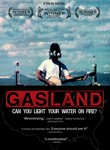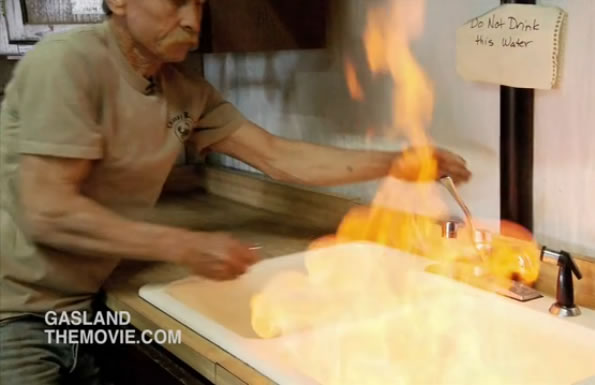 Industry groups began raising objections to the movie “Gasland” when the documentary first aired on HBO last June. However, they recently stepped up their attacks when Gasland was nominated for an academy award.
Industry groups began raising objections to the movie “Gasland” when the documentary first aired on HBO last June. However, they recently stepped up their attacks when Gasland was nominated for an academy award.
Energy in Depth, a group representing a coalition of industry groups including the Pennsylvania Independent Oil and Gas Assn. and the Texas Alliance of Energy Producers. sent a letter to the Academy of Motion Picture Arts and Sciences arguing that “Gasland” should be ineligible for best documentary feature because, in their opinion, it contains inaccuracies.
While other industries have launched public relations campaigns to discredit documentaries — health insurers targeted Michael Moore‘s “Sicko” in 2007, and Dole challenged a 2009 documentary called “Bananas!” — this is the first time an industry group has appealed directly to the academy.
Compared with documentaries like “Sicko” or the environmental film “An Inconvenient Truth,” “Gasland” has been seen by relatively few people. The film took in only $30,000 in a small theatrical release in the fall. But in recent months Fox has shown “Gasland” to members of Congress and at the Environmental Protection Agency, and held community screenings in 100 cities. But that is the prerogative of the filmmaker.
What the industry has done in writing the letter to the academy was to draw more attention to the movie than it otherwise would have gotten. This kind of action might actually result in more members of the academy voting for it. They’ve revitalized the life of this labour of love documentary.
In “Gasland,” director Josh Fox learns that the land near his Pennsylvania home has been designated for hydraulic fracturing or fracking, a process that involves blasting water, sand and chemicals into underground rock to extract oil or gas. Fox, whose previous film “Memorial Day” was about the Abu Ghraib prisoner abuse scandal in Iraq, sets out on a road trip to fracking sites around the U.S. to learn more about the process.
The academy understands its role does not include that of an investigatory agency, and the members will make their decisions on this year’s documentary category as they have done in the past. Whether or not the film wins an Oscar, the past months have done more to increase public awareness of this industry practice (a December poll conducted for the nonprofit Civil Society Institute found that 45% of Americans very or somewhat aware of the controversy about fracking.) than the many news stories about the problems communities have experienced, and we hope that the state and federal regulatory agencies will work to ensure the industry applies this process in a way that is not hurtful to citizens who live around fracking sites.
###
By promoting cleaner energy, cleaner government, and cleaner air for all Texans, we hope to provide for a healthy place to live and prosper. We are Public Citizen Texas.



